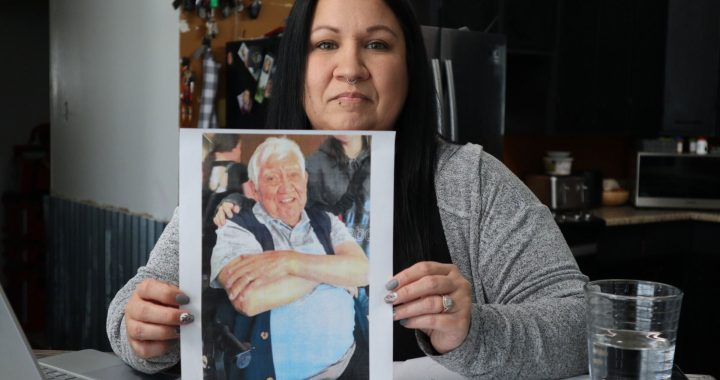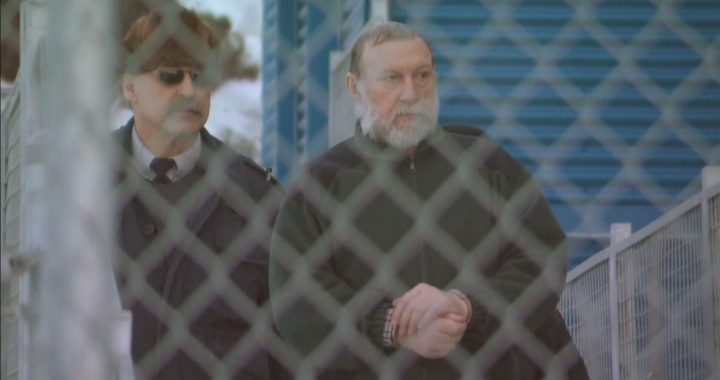Security footage made public this week of a peace officer knocking a First Nations woman to the ground has Indigenous leaders across Canada calling for an independent investigation.
“The RCMP continue to ignore its own legacy of violence and abuse of Indigenous people in this country and an independent investigation into the assault of Ms. Garson is needed. Anti-Indigenous racism is rampant in this country’s public services,” said Assembly of First Nations regional chief for British Columbia Terry Teegee, and Ghislain Picard, regional chief for Quebec and Labrador in a joint statement.
The footage documents an incident that took place in 2018 at an RCMP detachment in Thompson, a small city in northern Manitoba.
On Jan. 8, 2018 Community Safety Officers (CSO) in the city arrested Genesta Garson for suspicion of public intoxication. These officers, similar to peace officers, are employed by the City of Thompson.
When the then 19-year-old First Nations woman was brought to the detachment she was told to take off some of her clothing.
The video shows Garson remove her belt and then she throws it toward two safety officers and an RCMP officer.
It then shows one of the safety officers knock Garson to the ground where she lays unconscious.
The officers then drag Garson into a cell.
Rohit Gupta, Garson’s lawyer, said there is no excuse for the level of force used, “this [was] not self-defence.”
Read More:
Garson was eventually transported to hospital. She was charged with assaulting a peace officer. That charge was later stayed.
Garson and Gupta filed a formal complaint with the Civilian Review and Complaints Commission against the RCMP.
“When an Aboriginal person becomes a punching bag for an officer I think that officer’s conduct needs to be brought to light,” said Gupta.
However, Gupta said officers later showed up at Garson’s home asking her to drop the complaint.
No charges were ultimately laid against the officer.
Gupta adds a lack of a proper investigation has given his client no resolution or justice on her part.
Garson filed a lawsuit against the RCMP, the City of Thompson, the Attorney General of Canada and the two community safety officers in January.
The suit is seeking punitive damages caused by the incident stating the force used was, “disproportionate, unnecessary and unreasonable,” as well it states what took place infringed on Garson’s charter rights.
It also claims officer’s demands for Garson to strip down to one layer of clothing, including the removal of her bra in front of male officers, “humiliated and deprived her of her dignity.”
Gupta questions the protocol in place at the detachment, “was it necessary to remove her bra in these circumstances, what danger did she present?”
“If [officers] truly believed she presented a danger to herself or a danger to the public why wasn’t this person provided medical attention from the get go.”
The policy is used in all cases where an intoxicated person is brought in, according to Gupta.
He said this incident also highlights the need to examine the Intoxicated Persons Detention Act (IPDA), which allows officers to take anyone into custody they may believe to be intoxicated.
“There are many people who suffer from addictions that are intoxicated in Thompson… these addiction issues shouldn’t be addressed by criminalizing addiction and using the same environment that we have for people that commit crimes.”
This week Jane MacLatchy, commanding officer of the Manitoba RCMP, released a statement acknowledging there are issues with the act.
“We all know a detachment cell block is not the best place to house someone who is intoxicate; however, sometimes there is little other choice,” she said.
“I can assure you that our senior officers are working with the province and partners across the sectors to find solutions that do not involve arresting individuals and placing them in our cells.”
MacLatchy added she has requested that an assessment be completed on all training provided by the City of Thompson to CSOs.
The City of Thompson says since the incident changes have been made to the CSO program including a Public Safety Manager will provide proper oversight, and mandated training, which includes use of force and cultural proficiency training is adhered to.
Meanwhile, Assembly of First Nations regional chiefs from British Columbia and Quebec and Labrador have called for an independent investigation.
They are demanding greater public oversight and an overhaul of law enforcement agencies to prevent violence and death against Indigenous women.










